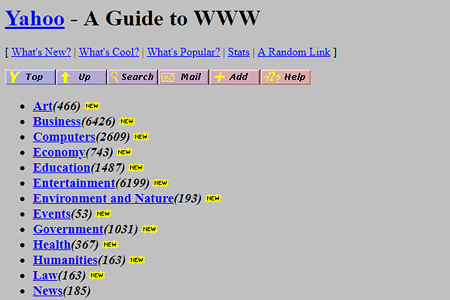The Old Fashioned Distributed Internet
Day 30 of the #100DaysToOffload Series:
The first time I laid eyes on the Internet, the WWW was barely a thing. Other services ruled. Things like gopher, nntp, and IRC. Now the many people don’t even know there’s a difference between the Internet and the World Wide Web. It might be time to go back to the good old days.
Before we even begin, I realize that we can’t go back to what was. I remember sitting in computer labs where you sat down and just started using a computer. You didn’t need a username or password because all the computers were logged in as Admin automatically.
We’ve learned a lot since then, a lot of it the hard way by being oblivious to what could be done if protections weren’t put in place. We can’t just throw all that away and go back to doing things the way we were before.
Still, there are some things that I’d like to go back to.
World Wide Web

The web was simpler then. Some may say uglier, and they wouldn’t be wrong. Still, there was something to be said about a web where content was King because every web site was pretty much gray background, black text, and blue underlined links. It was the late 90s before I even saw something move on the Internet, and it was a horrible animated gif.
Each site was equal. There wasn’t a central place to go to, and more often than not you found out about web sites through word of mouth or via blogrolls. It was a truly distributed Web.
Now, there’s so much advertising and javascript and this that and the next thing that content can barely be recognized. Is your site worth reading if I can’t tell what is content and what is advertising? You find sites through search engines, that tell you what sites are the best ones for you to read, and if Google or Bing doesn’t have it on the first page, you’re not going to see it.
NNTP
Network News Transfer Protocol. It was mainly used for transporting Usenet news articles between news servers. It was distributed, and the Usenet stuff was pretty much plain text. Things got a little fancier later on and it was a huge source of pirate software, movies, and music.
I’m not an advocate of pirating content from artists, but I think software should be free. I’m not suggesting stealing it, I’m suggesting using FOSS, but I’m sure you all got that anyway.
But I’m getting away from my subject here.
NNTP and Usenet was a distributed news source that wasn’t weighed down with advertising and ego. I miss those days.
Gopher
Back then, Gopher was a lot like the web. Maybe a little harder to access and navigate, but functionally it was very similar. It was a distributed series of servers for distributing, searching, and retrieving documents.
Gopher was a simple protocol, and even though a lot of people aren’t aware of it, there is still a loyal following to this day. Many people write their own gopher servers, though there are FOSS options available.
IRC
Internet Relay Chat. I can’t even begin to tell you how much time I spent on IRC when I was in college. I met life long friends there and even ended up marrying one of them. It was a series of servers that all communicated. You could chat live with people who weren’t even on the same server as you.
Distributed
You might have noticed a word coming up again and again in my descriptions. Distributed. Back then, pretty much everything was distributed. There were servers and they talked to each other with the same protocol to make distributed services.
Today, services have become centralized and controlled. We have Google and Bing for search, we have Amazon for shopping. There are Facebook and Twitter for social networks. All these services are tied back to single companies that control the material that shows up on your screen.
I think it’s time we went back to the way we did it before. Back to the Internet when it was Distributed.
Looking for comments? There are no comments. It's not that I don't care what you think, it's just that I don't want to manage a comments section.